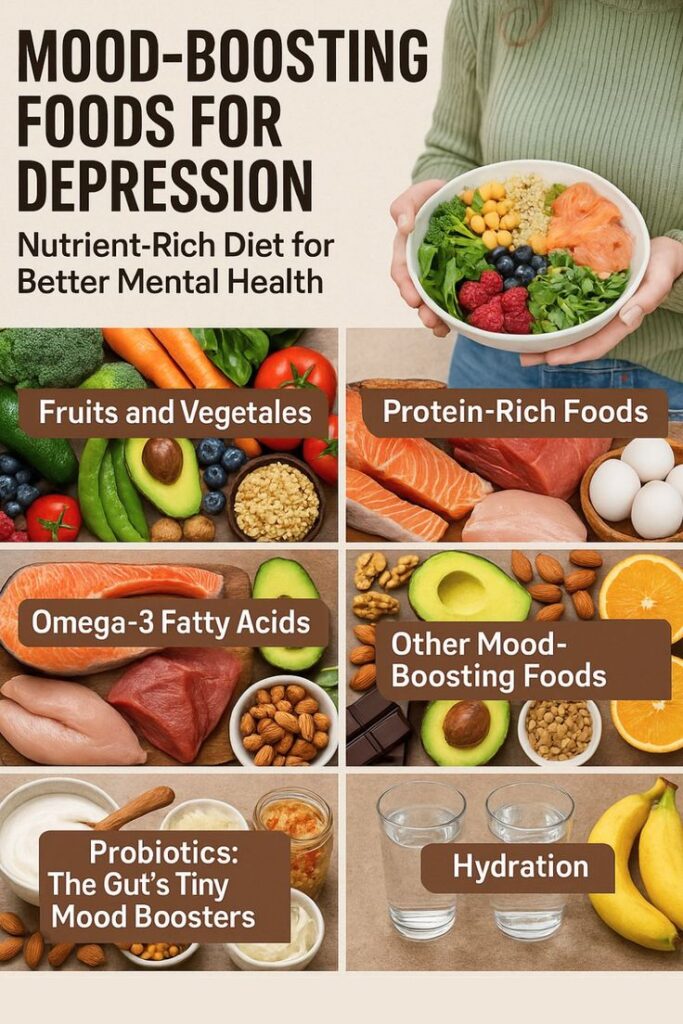Focus Keyword: natural remedies for depression
Introduction
Depression is a complex mental health condition that often requires medical treatment, but many people ask: can natural remedies for depression—through diet, herbs, lifestyle changes—really help? In this article, we examine the scientific evidence, trending natural treatments, practical strategies, and when professional help is essential.
Table of Contents
- What “Natural Remedies” Means
- Evidence Backing Key Natural Remedies
- Foods & Nutrients
- Herbs & Supplements
- Lifestyle Changes
- Trending Keywords & Related Practices
- How to Use These Remedies Safely
- Internal & External Resources
- YouTube Insights
- FAQ (Rich Snippets)
- Final Thoughts
1. What “Natural Remedies” Means
Natural remedies refers to non-pharmaceutical methods that may reduce symptom severity of depression. These include dietary changes, herbal supplements, mindfulness and meditation, exercise, and other lifestyle practices. These treatments are often used in addition to therapy or medications, NOT always as a replacement.
2. Evidence Backing Key Natural Remedies
Below are remedies supported by recent research. Use these if you’re interested in natural remedies for depression:
| Remedy | What Research Says | How to Incorporate It |
|---|---|---|
| Foods & Nutrients | A scoping review of 64 OTC remedies found omega-3 fatty acids, vitamin D, and probiotics show promising results. ScienceDaily | Eat fatty fish (salmon, mackerel), take high-quality fish oil if needed; get sun exposure or supplement vitamin D; include fermented foods (yogurt, kefir) or a trusted probiotic. |
| Herbs & Supplements | Herbs like St. John’s Wort, saffron, lavender, rhodiola, etc have been shown to help mild to moderate depression in some studies. Emerging evidence for lemon balm, chamomile, magnesium. ScienceDaily+2PMC+2 | Use standardized herbal extracts; start with low doses; source from reputable suppliers; always check interactions (especially if already on antidepressants). |
| Lifestyle Changes | Meditation and mindfulness practices have been shown by Johns Hopkins and others to reduce symptoms of mild to moderate depression. Johns Hopkins Medicine Exercise (aerobic, strength training, yoga) is also consistently helpful. Sleep hygiene, exposure to natural light, social support, reducing stress all matter. | Try to build a daily routine: 30 mins of walking or exercise; practice mindfulness meditation (10‐20 mins); ensure 7-9 hrs of sleep; reduce screen time before bed; spend time outdoors; seek connection with friends/family. |
3. Trending Keywords & Related Practices
To help your content rank better and stay relevant, you may want to include / internally link to content around these trending keywords:
- natural depression remedies
- herbal remedies for depression
- foods that fight depression
- best exercises for depression
- mindfulness meditation benefits
- mood-boosting supplements
- depression and diet
4. How to Use These Remedies Safely
- Always consult a healthcare professional before starting supplements or herbs, especially if you are on medication.
- Watch out for side effects and interactions (e.g., St. John’s Wort interacts with birth control, antidepressants, etc.). Mayo Clinic
- Start small and build up—e.g., try one new habit at a time.
- Track your mood, symptoms, and changes so you can tell what is helping.
- Natural remedies are not replacements for therapy or medications in moderate to severe depression.

5. Internal & External Resources
Internal Links (on your own site, for example):
- Link to your blog post about “Daily Habits to Manage Depression”
- Link to 10 Symptoms
- How to copehttps://mindmentra.com/how-to-cope-with-depressive-thoughts-practical-steps-that-work/
External Links:
- Mayo Clinic’s Natural remedies for depression: Are they effective? Mayo Clinic
- Johns Hopkins article on “Natural Relief for Depression” Johns Hopkins Medicine
- The study “Science tested 64 natural remedies for depression…” Frontiers / ScienceDaily ScienceDaily
6. YouTube Insights
Here are useful videos that can be embedded to enrich your post and engage readers:
- The Three Best Herbs To Fight Depression YouTube
- 7 Ways to Treat Depression Naturally Without Medications YouTube
Embed one of these near the start of the blog (after intro) or in the “How to Incorporate” section.
7. FAQ
Here are some FAQs you can include in a FAQ block (schema) to help with search engines:
Q1: Can diet alone cure depression?
A: No. Diet can support mood and reduce symptoms, but for moderate to severe depression, professional help is usually required.
Q2: Are herbal supplements safe?
A: Some are safe if used properly, but they can interact with medications, cause side effects, and often lack regulation. Always consult a doctor.
Q3: How long do natural remedies take to work?
A: It depends. Some lifestyle changes (like sleep, exercise) may help within a few weeks; herbal/supplement effects may take 4-12 weeks. If no improvement is seen over time, consult a mental health professional.
8. Final Thoughts
Natural remedies for depression can offer meaningful support when used mindfully and combined with proven treatments like therapy, medication, or counseling. Nutrient-rich foods, certain herbs, daily exercise, good sleep, mindfulness, and social connection all have evidence backing. But natural doesn’t always mean harmless—always use them wisely and seek professional advice if needed.
You deserve a life with more peace, mood stability, and hope. And natural approaches can be part of that journey.